Naming your company – a little help with free business name generators
What’s in a name?

Names are important – that’s why there are companies that will charge you 7-figure sums to help you find the right name for your business. That’s not always a viable option, of course, so most of us have to come up with our own business names.
We have talked about creating a logo for your business, and online apps to help you to make a great logo that represents your business. Of course, another part of that, and an important part of a logo and brand identity, is the name of your company. That isn’t always easy, and you might find you’re inadvertently copying or coming unexpectedly close to competitors. It should be memorable, hopefully meaningful regarding your business’ purpose and products, and avoid ‘collisions’ with offensive or amusing slang terms which conflict with the meaning and ethos of your company. It’s good to think about what it means in other languages for countries you may be selling or operating in to avoid embarrassment. We’ll look at this in more detail later.
A great name is at the core of your brand, making you recognisable and synonymous with a great product and service in your industry. Think Coca Cola, Google, even Guinness as brands which are instantly recognisable, and used as generic terms by people, who will go to them rather than looking for or to alternatives in the same industry.
Of course, today it’s a competitive market, especially in eCommerce, and customers have more choice than ever – so you want to look at options that are evocative and say something about the task, because you don’t have the decades (or more) it’s taken the likes of Guinness, McDonald’s and others to establish themselves. You need to stand out, and then remain memorable after the customer has looked at you to get the first sale. And after the first sale, your service and products will get the 2nd, the 3rd… And they will remember you and your brand then, and come looking for it – and even better, recommend it!
Your company name online
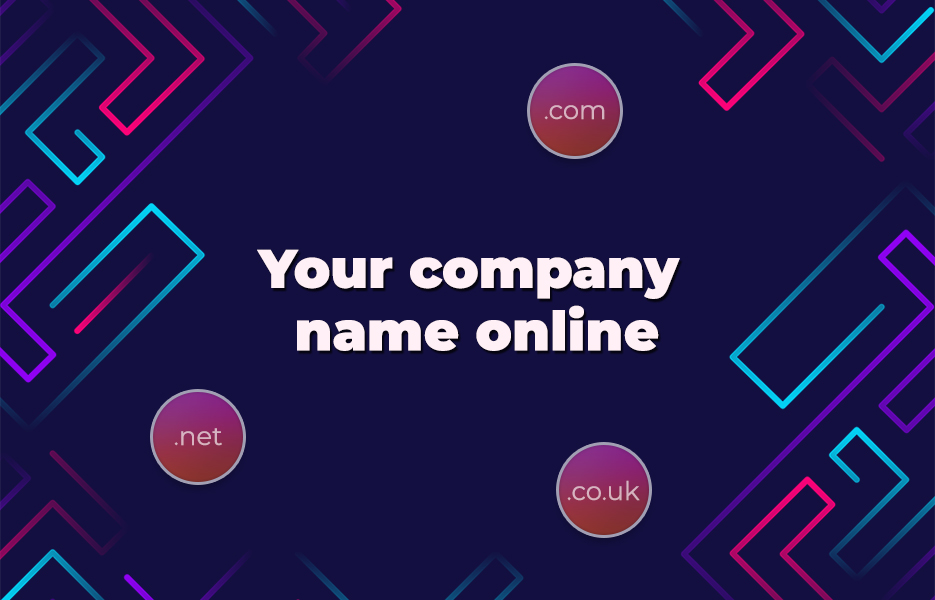
The right name should be available for registration on social media and your preferred web domains (.com, .net, .co.uk, etc.) in order to ensure you have a consistent identity.
Websites
When you pick your name, and you’re happy with it, then see if it’s available online as a domain name – .com is the default that you will want, but you may also want to consider more than one extension to avoid imposters, like .net, .co.uk, etc. there are a number of checkers available, including LLeanDomainSearch and OneClickName.
Register your domain(s) sooner, rather than later once you have made your decision. Better to have it now, than prepare everything and find someone else has registered it, but can make it available for a price. Remember, you can always set up a holding page and have more than one web site address pointing to it while you build your website.
What’s the difference between a name and a brand?
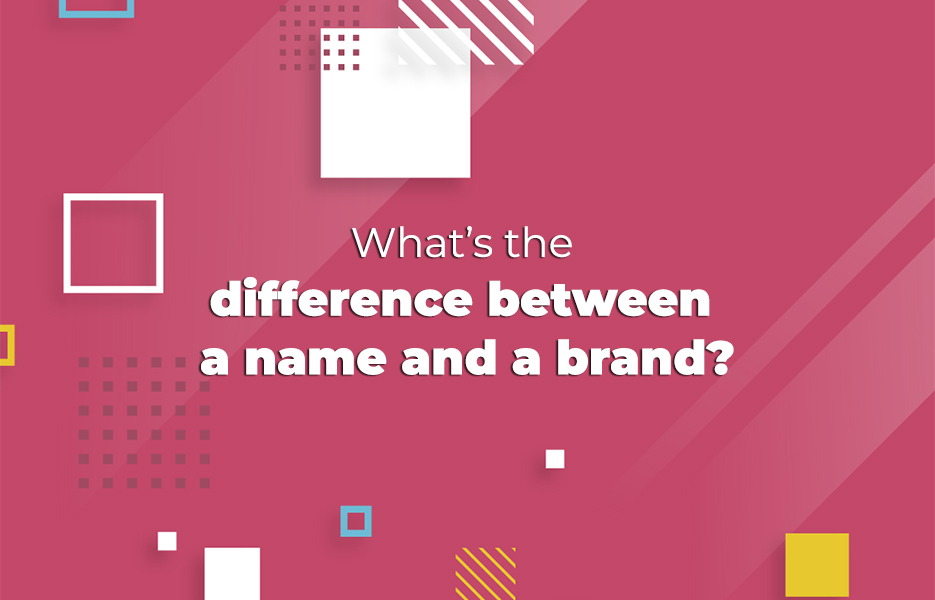
A name is something that tells people who you are – Most, if not all people and companies have a name, and that can be a part of their brand – but it’s not the brand itself.
A brand, in contrast, is an identity that people trust and come back to. Your name can help to inspire the creation and attractiveness of your brand if you also have the right team and ethos, and can help a good company become something truly great.
Jeremy Miller, author of ‘Sticky Branding’ and ‘New Year, New Brand’ – talks about ‘First Choice advantage’. This is where you have such a great relationship with your client, and you’re so memorable, they come to you first. Look at Amazon, or Apple. Your name is a key part of it, but there will be other work to come.
Trademarks, Trading Names and registered businesses
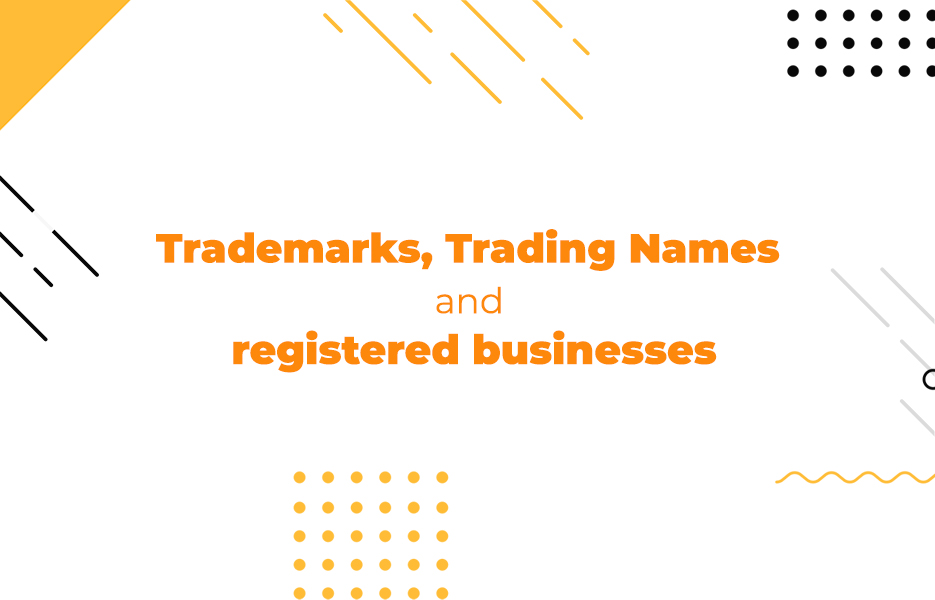
Don’t forget, finding and choosing a name is one thing, but you should also make sure it is OK to use and that you’re protecting it.
In the UK, you can register the name of your business with Companies House for just £12 to incorporate a limited company – If approved, this would stop others from registering the same, or a similar, name. This also applies to you, of course – when you apply, it might be refused if your name is too similar to another business’ name. You can look at the official guidance on names, and check the availability using the company name checker and the trade mark database.
But registering a company requires that you and others become director, and comes with obligations of its own (legal obligations with penalties), and doesn’t prevent people from trading under that name – a company can trade as a different name than the company is registered under. A ‘trading name’ must not:
- Include the phrases ‘ltd’, ‘limited’, ‘LLP’, ‘public limited company’, ‘plc’ or ‘limited liability partnership’
- Be the same as an existing trade mark
- Contain a ‘sensitive’ word or expression without permission that imply a connection with the government.
Alternatively, you can register your company name as a trade mark. This costs at least £170, (non-refundable) and if accepted it lasts for 10 years, but is renewable indefinitely. There is guidance available to help, but ideally you should get professional advice as part of your research. And don’t forget that trade marks are not registered at Companies House, but at the Intellectual Property Office.
In the USA, you can search at the USPTO, and also consider searching at Trademarkia to check Australia, China, Canada, the UK, Europe, the USA and the global (WIPO) database.
Google Ads

You will be advertising your company, and so you need to be thinking ahead about how your chosen name will work on Google Ads. As such, when considering one or more names, remember to make use of the ‘find keywords’ option in AdWords.
Searching for the name lets you see not just how many people are searching for your proposed name globally and locally, but also shows variants of it. It could be that someone has a very close name to yours which is already popular, so you would be overshadowed, and this could save you problems later.
Google Trends
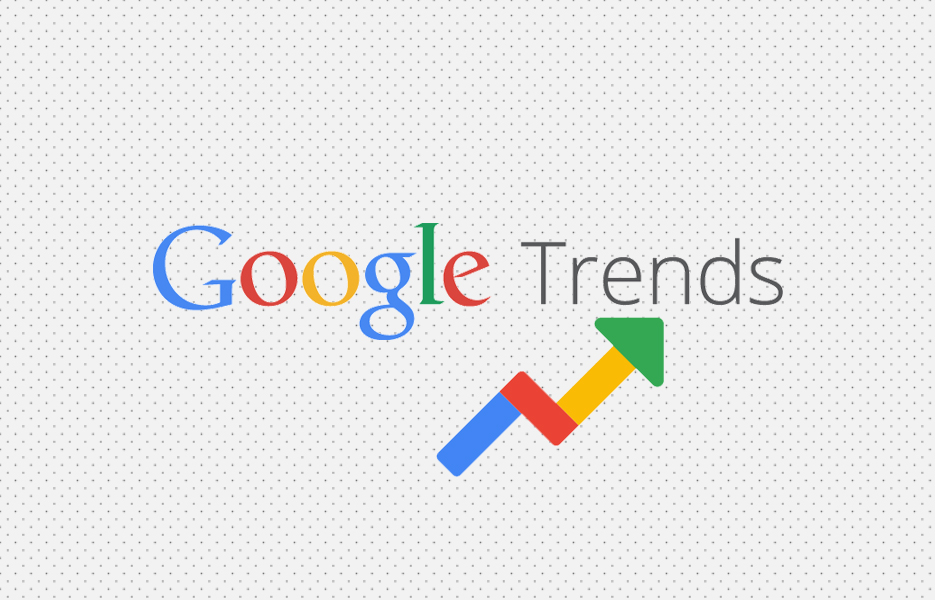
Another way to look at how popular the name you’re using is, and who else is using it, would be to use Google Trends. It’s also a way to identify associated word/name options. We have an article about it here. The article covers a range of other reasons to use Google Trends as you build your business, such as identifying product niches, finding products that complement your existing focus, and spotting and taking advantage of trends, without getting caught out by a trend that’s already passed it’s prime.
Languages
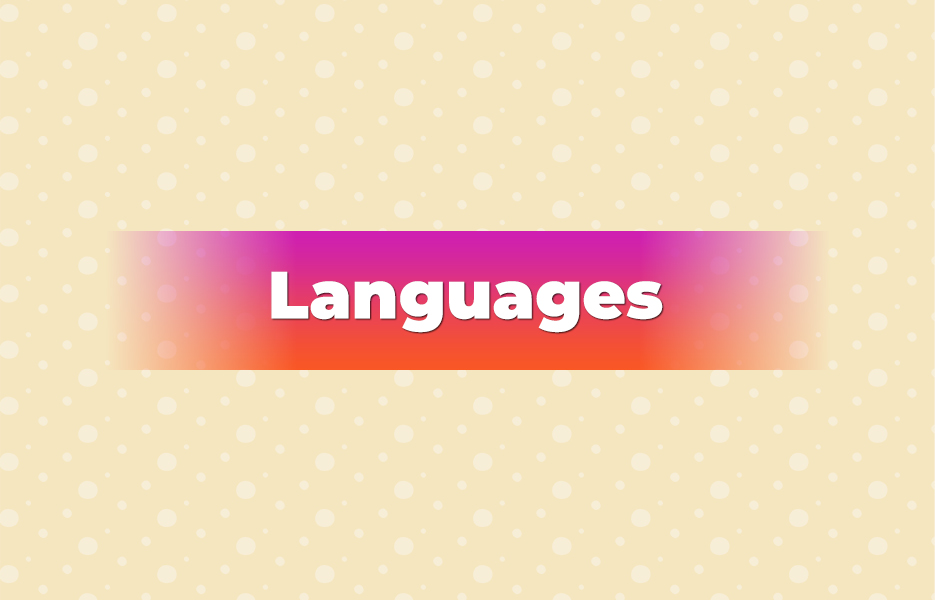
You’re reading this in English, obviously, and it’s not uncommon for English speakers to co-opt words from other languages as the name of their business. When selecting a name though, be sure to think through and research what it might mean to others. If you choose a word from another language, dos it have a slang meaning that may not improve your image? Does your made up name sound like something rude, or like something that compromises your brand message in another tongue? This is something you should revisit as you expand into other markets, of course.
Google translate may not be the right tool to check, either – Just as Americans and British people speak English, but have different meanings for the word ‘pants’, and different slang, so do all languages. Further examples of this include:
- Electrolux couldn’t understand why Americans didn’t respond well to their slogan “Nothing sucks like an Electrolux”.
- ‘Puffs’ tissues were marketed in Germany under their own name, even though ‘Puff’ is German slang for a… house of ill repute.
- Coca-Cola had issues with translation in China. Depending on the dialect, translations included “Bite the wax tadpole” or “Female horse stuffed with wax”. Not necessarily appealing!
There also may be an existing brand in that country that sounds similar
- Colgate once launched a new toothpaste called ‘Cue’ in France, having not checked it, and not realising that it was also the name of a very well-known pornographic magazine.
Just because your name sounds fun, quirky and exciting, you don’t want to find out that you’ve picked something racy or scandalous when you start advertising in a new country!
It never hurts to ask a native speaker to have a look or give some input on your list of options as well, where available. If you have friends with language skills they might give you the benefit of their knowledge over a cup of coffee. It might save a lot of money and embarrassment!
Take as an example the Iranian company that tried to market its soap using the Farsi word for snow – ‘Barf’. A lot of people have access to American TV shows in the Middle East, and learn English from them, meaning they had a very different understanding of that word.
Why use a business name generator?

Of course, all these things we have discussed above mean that you can end up in an endless loop of meetings, suggestions, discussions and checking.
If you’re stuck, though, then you could always try to short circuit this process, by using an external option, such as an online tool, to suggest appropriate business names for you, and seeing if those names will work for your company. You could also consider synonyms from looking up ideas in a thesaurus, of course.
We’ve gathered some together for your consideration below. With them being free, they are definitely worth trying, if only to add some inspiration and additional ideas into the process you’re using, and to reduce the pressure on you and your team a little.
What is a business name generator?
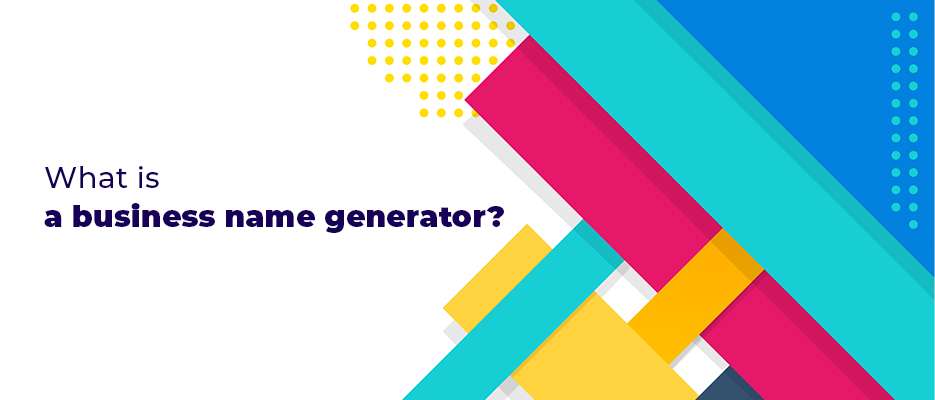
A business name generator is an app that takes information about your company, or the ideas you have for a name, and provides ideas for you to either use, or to be inspired by. The more advanced ones will even check if it’s got a free domain name, and for which domains to reduce the time you take to make your decision. Some even check social media, which will save you even more time!
There are also some unusual ones out there, to help you break out of a rut. We’ve lined up a selection to help you find the one for you.
Free business name generators
Lean Domain Search
Lean Domain Search focus on .com Domain Names – you enter a term to search based on, and it provides variations on that term. You can order the results by popularity, alphabetically or by length, and even filter for those that start or end with the term/word you gave. When you click on a term to proceed, you’ll be told if the Twitter handle is available (or if it’s too long), register the Twitter account, and/or sign up for a WordPress or BlueHost site account using that domain (it’s an affiliate link, so they earn some money from your sign ups).
Shopify
Shopify’s business name generator is available on their website, one of their business tools. After you enter one or more words to form the seed of the name, Shopify will return a list of suggestions based on the search term. It’s simple and rudimentary, but if you’re going to be using Shopify to host your webstore, then it’s perfect. A single click can register the name of your new store on Shopify, so you can start to build it.
Alternatively, the results include a link to go to Shopify’s Exchange Marketplace, where you can buy and assume control of an existing Shopify store – You might then look to rebrand that later, while retaining an existing core set of customers. It isn’t for everyone, but can be a good start for Shopify sellers.
OneClickName
OneClickName is another business name and domain search tool, but with their own twist.
You enter some key words or terms about your business and it not only suggests available names/domain names, but it includes an example logo.
Each suggestion has a price attached to it for the domain/name. Clicking on ‘View more’ gives you a page of information on the domain, including tags, keywords, and category information. In addition, it has a line-up of similar domains in order to allow you to narrow down on the first choice and refine.
They won’t host your site, simply sell you the domain, and set up the transfer to the host of your choice. It offers you a lot of opportunities to find an interesting name, but is unlikely to be for everybody.
NameStation
NameStation requires that you sign up for a free account, but gives you access to other tools in addition to a name generator. One of its innovative concepts is ‘Name Contests’, where you can post a bounty for a name for your company, and let other members compete for the prize. You can name the contest and add an explanatory sentence, and see what people come up with. People then vote for suggestions, with you getting a winner at the end of the time limit.
Previously featured on TechCrunch, Mashable, and SEOMoz, it’s a solid search and suggestion site.
BizNameWiz
BizNameWiz is a semi-randomised name generator – Once you have entered some words, you can review the ideas and titles it offers. If you’re interested in a domain name too, there’s an option to check if the domain for the name is available through GoDaddy (It’s on by default).
It applies industry filters, which you can change. You can also filter the results by character count, whether you want one and or two words, and if you want the words it offers to rhyme.
Where you see an idea, or ideas, you like, you click the name to check domain availability. Each domain offers a ‘Register Now’ button with an affiliate link to register your domain, and the price.
It has some good filtering options, but may be a little scattershot, but could give you some ideas to inspire you to polish them to your finished name.
Dot-o-mator
Dot-o-mator (also available as iPhone app) takes a slightly more random approach to name generation. It’s less about the name related to your company, more for those looking or something a little odder, and more memorable (Though it may break some of the recommendations above).
Loading the page and clicking on ‘Generate name’ shows you an initial random word. Don’t like it? Click again. On the right hand side, it retains a list of the other names you requested. Want to go back to a previous one? Click on it.
Clicking on ‘Check Name’ will call a partner to check if there are domains available based on the selected name to be registered (via an affiliate link). If any domains are available to register with that name (.com preferably, but others included for your consideration, along with prices for each option).
Name Mesh
Name Mesh offers something a little different – When you search for a word or phrase, it’s still a domain search, but it returns 9 different lists of results based on different criteria:
- Common
- Similar
- New
- Short
- Fun
- Premium (Results have price next to them)
- Extra
- SEO
- Mix
It defaults to hiding the results already registered by someone, to make your decisions simpler. Clicking on a name will open a window confirming the availability of the domain, its cost with the domain registrar you chose on the search page, as well as its availability (and variants) on Twitter and Facebook. They also offer a link to a resources page for starting an online business.
The volume of options offered might just be enough to find you a good option, or a jumping off point to think about it more offline.
Bust a Name
Bust a Name is another tool designed to create domain names/business names. It offers a ‘random name’ button, or filtering options to control what the suggestions start or end with, length etc. It also lets you specify what domain types you are interested in (.com, .biz, etc).
You can then save that idea, or buy it there and then through their links to registrars like GoDaddy and NameCheap.
NameStall
NameStall is a more complex tool for generating a new domain/business name. Your keyword will be included in the result, but you can filter to include/exclude ‘starts with’, ‘ends with’ and whether the result is hyphenated. You can also select the word group the search is based on from dozens of options, including ‘1500 popular last words’, 1000 top keywords, common smart misspells, adjectives, nouns, verbs, as well as business categories like education, entertainment categories like music and many others.
Domain Puzzler
Domain Puzzler is an interesting approach to this problem. As a domain search engine, you can tick the domain types to search for (.com, .co.uk, .biz, .net, etc), and enter a keyword(s) to search for. But it comes with modes:
- Easy
- Advanced
- Magic
- Page Rank
Easy mode returns a simple list of results, if the domain is available, what the Google Page Rank is, and offers you the option to save your favourites for later.
Advanced has an extra step, allowing you to specify additional keywords to be used in the final suggested domains/names.
Magic simply combines popular searched for words with your search terms to provide new options and ideas that are currently relevant.
Page Rank is only valuable when searching for certain sets of words, as it only returns domains with a page rank already.
Impossibility!
Impossibility! is an attempt to be different, and maybe make choosing a name a little more fun.
You start with a word, and you choose to have it add a word to the start, or end of the word. You can choose what KIND (adjectives, verbs, nouns) and what length (4,5 or 6-letters) of word to add, or go crazy and choose the ‘any’ option. What comes out the other end is just a surprise.
The list of suggestions will show if they are registered domains, or unregistered. If unregistered, they offer a link to GoDaddy to register it quickly and easily. There’s also a link to partners who offer hosting, should you need some. It’s a fun way to get some curve balls into your list and get out of a groove.
Namerific
I you’re looking for something unusual and memorable, then Namerific offers you access to some premium domain names (up to $10,000) after you search for your keyword(s). You can filter the maximum and minimum costs, word length and category you’re searching against.
Each domain is pre-registered, and can be transferred to you after purchase. It comes with a suggested logo, but be sure you have a good limit on your card – with a minimum price of $499, and an average cost just south of $10,000, the Namerific team are offering what they think is a premium service and a premium product.
Wordoid
Wordoids are made up words to use as domain and brand names, if you feel like breaking a rule or two. It’s a definite option if you want something unique to name your brand.
There’s the simple option – To just hit the ‘Create Wordoids’ button with the default options. Or there’s the advanced option, letting you choose from:
- Languages – Choose one or more of English, Spanish, French, Italian and German – The chosen languages will define the rules used to create the wordoids.
- Quality – High, Medium or Low – The Higher the quality, the more they sound like natural words.
- Pattern (optional) – Choose ‘Beginning with’, ‘Ending With’, or ‘Containing’ and type a word or sequence of letters to specify part of the wordoid.
- Length – Set the maximum length of the wordoid, from 5 to 15 characters – Shorter wordoids tend to look better than longer ones.
- Domain name – Select whether or not you want to see wordoids that are not available domain names.
- Registration and hosting – Select GoDaddy or NameCheap for the web host or registrar.
Once you have generated a list, you can pin the ones you like to the favourites tab, to consider later. Create an account and they’ll be waiting next time you open the site.
Social Media
Before we go any further, let’s do a quick explanation of what a social media handle is – not everyone is aware. The term ‘handle’ comes from the old CB radio networks, referring to the identities people used in place of their ‘normal’ names. On social media, your account name(s) – your ‘handle’ – are your public identifier to other users of the network, and therefore represents your brand. So it matters to get it right, and to do so early, before someone else grabs it.
71% of consumers purchase from brands they follow on social media. Or that Facebook had 2.45 BILLION active users by the 3rd quarter of 2019? This contrasts with 1 billion on Instagram, 300 million on Pinterest and 303 million on LinkedIn.
Twitter limits handles on its accounts to just 15 characters in length, and other social media channels have restrictions too. Make sure you check them for the channels you’ll be using. If you aren’t going to use that network, it may still be worthwhile registering the account so that someone else can’t later.
Is the name taken? If your brand can’t use its name as a social media handle because it is taken by an individual (you can check this online), and therefore won’t clash with you, then consider an alternative handle for use across all social media channels. You can look to follow the trademark route to take possession through legal action, and risk bad publicity.
Missing your preferred social media handle is something that happens to everyone – Look at celebrities like @TaylorSwift13 or Jennifer Love Hewitt’s @TheReal_Jlh, and in our case, we use @avasamsocial for all our social media accounts.
Look at how often the account has been used, too – If it’s been used rarely, and not recently, then you might be able to apply for it to be released for you to register. This may take a while though, so an alternative may be needed in the meantime. Twitter has an inactive account policy, for example.
Numbers aren’t a great way to step around the duplication issue, because they tend to be associated more with personal accounts or ‘casual’ accounts so what is?
Look at a variation of the name:
- Append a suffix or prefix to the name
o Official
o Real
o The
o Ask
o Dotcom or similar to tie into your website name
o Social
o Hello
o This is
o We are - Insert an underscore where the name has 2 distinct parts (But remember this will make it harder to remember after being told by someone verbally, for instance over the phone)
- Use initials where your name has multiple parts
- If the name is longer than 5 or 6 characters, remove a letter or letters to make a variant with a common abbreviation (‘bros’ for ‘brothers’ for example) to be easily remembered
- Don’t exceed the maximum length for the ‘shortest’ channel.
- If it’s short enough, append an appropriate keyword that’s relevant to your industry, such as ‘retail’, ‘cook’, ‘bbq’ for example, possibly separated by an underscore
- You could consider a location name to make you stand apart, so @RimmelLondon instead of @Rimmel
Why is it important to use the same handle on all social media networks?
With the same handle used consistently on social media, once someone has found you on one platform, they can easily find you elsewhere, and people don’t have to remember lots of variations. In addition, it means that when advertising your company and brand you can just use the one handle with indications of the networks you have, keeping things simpler.
Impersonation
If you have decided on a name and started using it before you check social media, you may find someone has already registered the name to impersonate you, or in the hopes you will buy it from them. Contact the social media platform and be prepared to show the evidence of use prior to account registration – Especially if you have registered the trademark.
What makes a good name?
As mentioned before, there are many individuals and companies happy to charge you for advice on what makes the right name for your company, and even more that will offer free advice. They don’t always agree, though – the ‘right’ advice will be affected by your business, your products, your team and your customers. But we can make sure you have a chance to consider a wide range of advice to help inform your decision, and that’s what this article is about.
Vistaprint are a company specialising in signage, printing and promotional materials. As a part of this, they offer advice for people in a range of business areas, including choosing a name. Among other things they suggest using deliberate mis-spellings, grammar mistakes, removing letters (as with Flickr) or foreign translations of otherwise ordinary terms, in order to make your business seem more memorable. Forbes, on the other hand, recommend avoiding names which are hard to spell and reproduce later, as does Entrepeneur.com, Entrepeneur also disagree with Vistaprint on the use of initials, like IBM, AOL and others, because they point out, in contrast to Vistaprint’s advice, that they can be boring, and you don’t have the advantage of time, or multi-billion dollar turnover (yet!).
There’s a general consensus that your name should mean something and relate to what you are doing – it should be part of your narrative to help people become attached to your business. While Vistaprint also talk about taking a word from the dictionary, be wary of anything too abstract. While there are successful businesses like Google who have taken an ‘unattached’ word and made it part of their identity, synonymous with their industry, it’s a hard road to travel as a business online with so many competitors.
Another piece of advice from Vistaprint is that, if you’re stuck, try to look at your product from another angle, or ask someone else too, in order to find a memorable name – Blackberry and Caterpillar are popular examples of this concept.
The name you pick should be easy to remember, easy to say and pronounce in conversation (stay with one or two syllables, or a maximum of three), and shouldn’t be too specific. When your company grows and expands, will the name be a limiting factor in adding new products and services? Avoid anything too geologically specific unless there’s a good reason associated with the veracity of your product(s)!
One school of thought is remains that you should resist the urge to use ‘unusual’ spellings of common words. If someone remembers your name and searches for it, you want it to be easy to find, or they might find a competitor instead. Consider contractions or abbreviations though – Like ‘Cisco’, who started out in San Francisco – But be careful not to go too abstract.
Psychology and naming your business

Naming your business can, and should be fun. It’s a creative enterprise, and can be rewarding (for both you and your team), helping you to feel more attached and invested in your venture.
Remember, when looking at your propose names, and their parts, synonyms and similar words, that people associate positive and negative consequences or emotions with particular words.
When we started looking at names for our new DropShipping platform that was in development, there were a lot of ideas around the word ‘drop’. It seemed an obvious idea, but it was pointed out that it tends to make people think of downward motion, failure or abandonment – Not what you would like to have in your business name while trying to provide them with the tools to succeed in business!
Therefore, while it was an obvious choice at first, once thought through, it becomes easy to see it wouldn’t be helping the business when people were introduced to it!
Also, don’t forget that, while there’s lots of advice in this article, there needs to be at least a little of ‘you’ in the name too. Whether you chose something meaningful, built off a random word, shortened, misspelt, contracted or otherwise change and combined words. Make sure that it represents you and your company, because people will find it easier to relate, and when you’re discussing your choice of name, it will come across in your enthusiasm and how attached to it.
The consumer
We talked earlier about the rules for building a good business name, and the different schools of thought on spelling/misspelling, made up words, acronyms etc. We talked about the brand, and the part a name plays in your brand to gain that lucrative ‘first choice advantage’ with your customers.
The thing to remember, of course, is that descriptive names might be easier to remember, but something more creative may be harder to forget. It’s a difficult balance to achieve. In addition, you need to think about the impression you want to make on the customer when they see your name.
You can often test this on people over a period – Probably not friends and family, but maybe you can identify another group you’re a part of that may be willing to help you see how they react to it, and if they retain it later.
In addition, it’s important to realise how customers relate to your name. 77% of consumers make their purchases on the basis of the brand name. 90% of buying decisions are made subconsciously!
Also, if customers remember you, they can recommend you – 84% of sales by consumers are reportedly associated with some form of referral – Either from a friend, or via online referral sites. So being distinctive and memorable can pay off in many ways – If they remember you, can recommend you and the other person can find you, then you’re winning.
Your name is important, as a key part of your brand. 82% of investors believe that brand strength is important for businesses and their key stakeholder. This means there is a lot of pressure to get it right.
But it’s also important to remember that your name is something for you and your team to get behind and be proud of as your business grows. When people ask “Why that name?”, it should be easy to explain, and should allow you to tell them quickly what the business does and is about. That person can then pass it on to others, who come look, hopefully buy something, and themselves tell others. A good name is the hook people remember, and the thing they can pass on in conversation (as well as by sharing links),
It might be easy. You may come across the right idea quickly, and it’s universally loved and does well.
You might spend two weeks looping through whiteboard sessions, look ups and email discussions, only to be stuck without a clear idea, too. Don’t worry, it’s as much art as science. Humans are complex beings, though sometimes our motivations may seem simple and transparent. Read the advice, think about it. Use what works for you, discard what doesn’t. Play with the naming tools, and see if they bring you inspiration. Find something that makes you smile, and others, too!

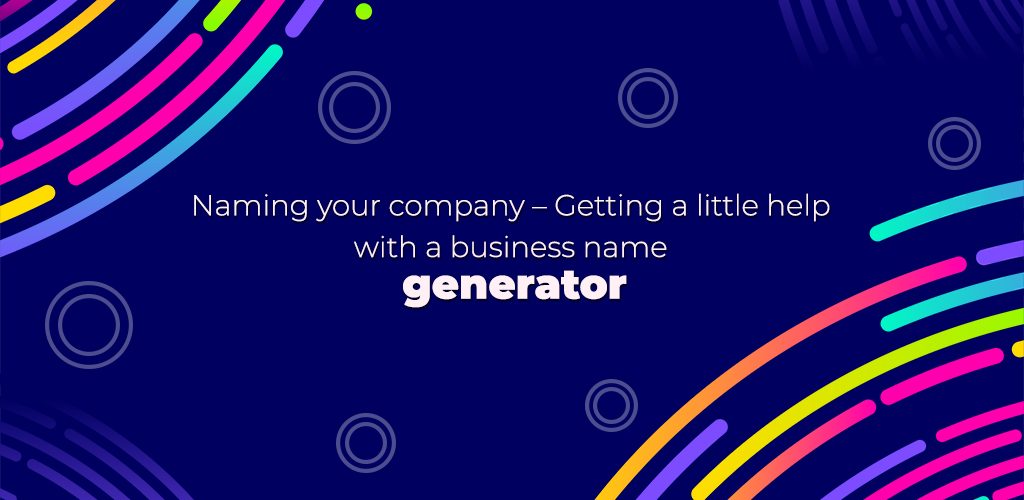
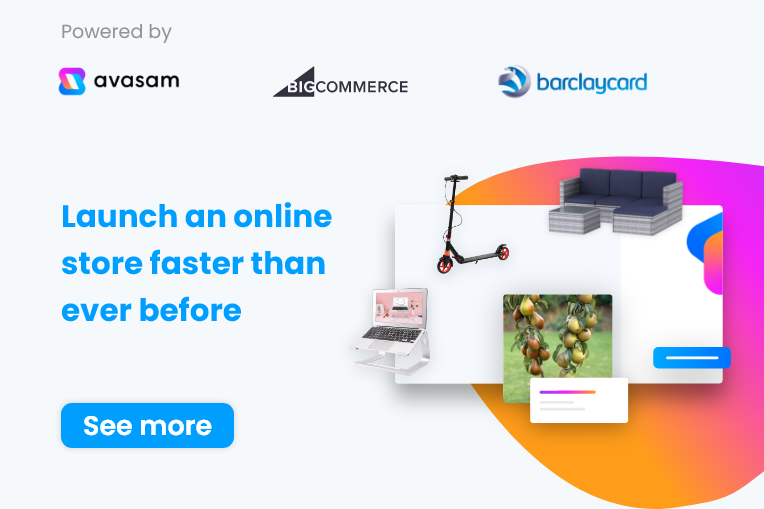
DropShip products from verified suppliers to diversify your inventory and scale your eCommerce business